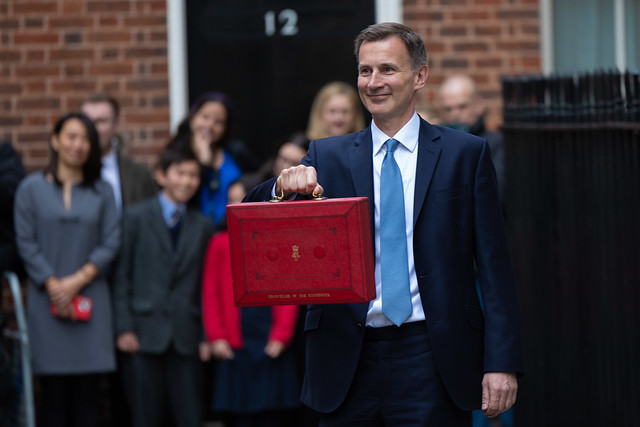Healthcare leaders respond to Jeremy Hunt's first budget speech as Chancellor

The Chancellor has been accused of ‘completely ignoring the health and social care crisis’ following his Spring Budget speech last week.
In his first budget, Jeremy Hunt unveiled a number of plans to support families and businesses, but the NHS and social care sector was largely left out of new funding proposals.
The only reference was in plans to make £10m available via the suicide prevention voluntary, community, and social enterprise (VCSE) grant in England over two years to support people experiencing suicidal thoughts or approaching a mental health crisis.
The Government will also embed tailored employment support within mental health and musculoskeletal (MSK) services in England.
This will include expanding individual placement and support (IPS), which has a good evidence base for supporting people with severe mental illness into employment.
Business support
And there will be additional support for businesses looking to break into the health sector.
Hunt said the Medicines Healthcare and Regulation Authority (MHRA) will explore partnering with other agencies in the US, Europe, and Japan and provide simple and rapid approval in the UK for products approved by these agencies.
In addition, digital health innovations for mental health, musculoskeletal, and cardiovascular conditions will receive £310m of funding over five years.
Too often care providers lack visibility causing unnecessary delays, so both institutions must shift their focus to improving long-term health outcomes, letting this dictate the support older adults receive
This will be used to digitise the NHS Health Check to identify and prevent more cases of cardiovascular disease.
For mental health, they will modernise and digitise mental health services in England, providing wellness and clinical-grade apps free at the point of use, pilot cutting-edge digital therapies, and digitise the NHS Talking Therapies programme.
Focus on integration
Commenting on the speech, Max Parmentier, a social care expert and co-founder and chief executive of health tech company, Birdie, said it ‘completely ignored the NHS and social care crisis’.
He added: “Hospitals must integrate more closely with social care organisations to leverage local care capacity.
“Too often care providers lack visibility causing unnecessary delays, so both institutions must shift their focus to improving long-term health outcomes, letting this dictate the support older adults receive.”
Jonathan Barron, a senior policy adviser for NHS finances at the NHS Confederation, told hdm: “Compared to the Autumn Statement, this Budget had little focus on health and leaves more questions than it answers when it comes to the NHS.
“There was confirmation that there will be no increase in either the NHS capital or revenue budgets over and above what was announced in the Autumn Statement.
Job security
“There is a £0.3billion uplift in health capital spending for 2023/24, but this comes from underspend in 2022/23 and does not represent an overall increase.”
But he welcomed Hunt’s decision to remove the pension lifetime allowance and increase the yearly allowance from £40,000-£60,000, which should allow more senior healthcare professionals to stay in their jobs longer.
Compared to the Autumn Statement, this Budget had little focus on health and leaves more questions than it answers when it comes to the NHS
He said: “The Chancellor also increased the childcare allowance to parents of one and two year olds to increase the number of people working and this will benefit many NHS staff.
“However, we are left with unfinished business on two key workforce issues.
“First, we have yet to see a resolution to the ongoing pay disputes.
“Any pay rise agreed above 3.5% for 2023/24 that does not come with new funding will mean NHS leaders face difficult choices in the coming year.
“The long-delayed Workforce Plan has also failed to materialise ahead of Budget Day and we are disappointed that it has been delayed once again.”